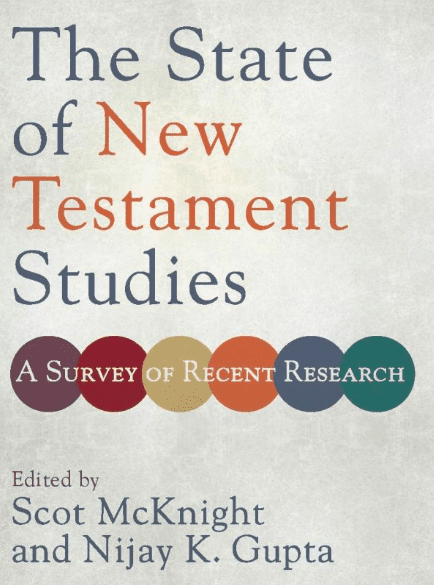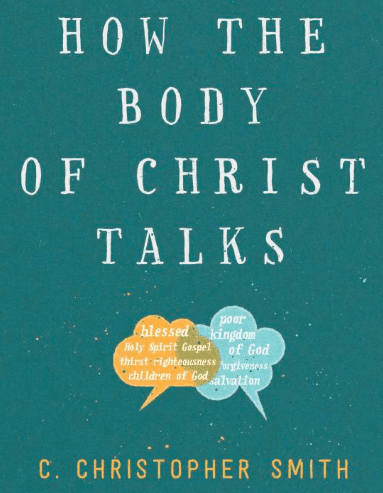Last updated on: November 9, 2019 at 9:08 am
By
Scot McKnight
Michael Gorman has fashioned a Pauline and NT theology rooted in cruciformity, and his approach is a NT theology, a NT ethic, and a NT ecclesiology. As such his work is a singularly important contribution to NT studies. His newest collect of essays expresses that theology in shorter chapter length forms:  Participating in Christ: Explorations in Paul’s Theology and Spirituality (#ad).
Participating in Christ: Explorations in Paul’s Theology and Spirituality (#ad).
But Gorman’s work is eclectic and this is becoming increasingly valuable to both professors and pastors: his central theme is participation in Christ but that theme pulls in, as John Barclay has done with his “gift” perspective, what is deemed valuable from the Old, the New, and the Apocalyptic approaches to Paul.
New life in Christ is life in the Spirit. Here is Michael’s conclusion and then I will offer a little of his supporting arguments:
We have encountered evidence from Paul’s letters for the inseparability of apocalypse and new covenant, and have therefore contended that Paul should be described as a proponent of the apocalyptic new covenant, the coming of which is an event of disruptive continuity. Moreover, we have seen that inherent in this apocalyptic new covenant is the need for apostles and all believers to embody, and thus also to manifest, the revelation. By means of the Spirit, the church is to be an apocalypse of the apocalypse, a living manifestation and exegesis of the surprising new covenant. Life the Spirit of the crucified Messiah will therefore reflect the counterintuitive and countercultural ways of God revealed in that messianic apocalypse. Paul’s own life is an attempt to bear witness to that apocalypse, empowered by the Spirit, and to encourage those who encounter him, whether in person or via his letters, to do the same.
Sometimes “covenant” and “apocalyptic” are seen as mutually exclusive options. The terms “continuity” and “discontinuity” (often expressed as disruptive or everything-is-new) also are seen as at odds. But Gorman is a peacemaker who makes peace between the categories.
A caveat: what is expected in Ezekiel and Jeremiah for the new covenant is undoubtedly seen by Paul as fulfilled in Christ through the gift of the Spirit. In that sense alone Paul has a new covenant theology. What continues to baffle me is the rarity of the term “covenant” in Paul. 9x in Paul and probably only 3x for what Paul is affirming for his “new covenant” theology. Here are his references in Galatians.
Gal. 3:15 Brothers and sisters, I give an example from daily life: once a person’s will has been ratified, no one adds to it or annuls it.
Gal. 3:17 My point is this: the law, which came four hundred thirty years later, does not annul a covenant previously ratified by God, so as to nullify the promise.
Gal. 4:24 Now this is an allegory: these women are two covenants. One woman, in fact, is Hagar, from Mount Sinai, bearing children for slavery.
Covenant then is not absent; it’s present. But to contend Paul thinks with that term may be contending for too much, and I’m not saying Gorman does that. Gorman has created a construct of many ideas with his helpful use of “apocalyptic new covenant” for what is going on in Galatians.
Now to Gorman.
1. With N. T. Wright and others, I contend that Paul is both an apocalyptic theologian and a covenant theologian—and specifically a new-covenant theologian. What is revealed, or “apocalypsed,” is the radically unexpected and new way in which the new covenant has come to fruition.
2. Borrowing Wright’s language, we need to recognize how Paul has reworked his theology of the new covenant in light of God’s apocalyptic incursion into human history and life in the Messiah and the Spirit—and specifically Paul’s experience of the Messiah and the Spirit.
3. A critical aspect of the content of Paul’s revelation is that the gracious “invasion” of God’s Spirit (Ezekiel) and Law (Jeremiah) into the hearts of God’s people that was associated with the promised new covenant has, in fact, occurred, but in a shocking, cruciform mode. This fulfillment is expressed in the language of the faithful and loving Messiah who now indwells Paul (and, implicitly, all believers; Gal. 2:19-20), the presence of the Spirit of the Son in believers’ hearts (Gal. 4:6), and believers’ fulfilling the “Law of the Messiah” (Gal. 6:2).
4. Thus, to return to the conjunction of Galatians 1:12 and 1:16 [which some pose as an either-or], the revelation to Paul and the revelation in Paul are inseparable—a claim that is developed most fully in 2 Corinthians but also in Galatians itself. By means of the invading and indwelling Messiah / Spirit / Law of the Messiah, Paul becomes his gospel (i.e., embodies his gospel), and he expects others to do so similarly—to live out the new covenant of faithfulness and love, the beginning of the new creation.
That is to say, the in-breaking of God into human history in Jesus’ new-covenant-inaugurating death and in the gift of the Spirit necessarily includes a divine in-breaking into the lives of individual human beings to create a community of the new covenant that embodies the character of that divine invasion. The result is both shockingly new and surprisingly continuous with the prophetic promises in Scripture.
 Then along came the New Perspective and we had a third partner. Now comes a fourth: the Finnish Lutherans have complicated justification by tying it to the Eastern view of theosis and union with Christ, making union the grounding reality so much that one can say they’ve created a genuine fourth alternative. In the book we are examining, Justification: Five Views, this Finnish Lutheran, established by Tuomo Mannermaa, view is explained by Veli-Matti Kärkkäinen. [Point of clarification: this book distinguishes two Protestant views, the traditional Reformed and the progressive Reformed. Point of interest: these Fins have some cool names.]
Then along came the New Perspective and we had a third partner. Now comes a fourth: the Finnish Lutherans have complicated justification by tying it to the Eastern view of theosis and union with Christ, making union the grounding reality so much that one can say they’ve created a genuine fourth alternative. In the book we are examining, Justification: Five Views, this Finnish Lutheran, established by Tuomo Mannermaa, view is explained by Veli-Matti Kärkkäinen. [Point of clarification: this book distinguishes two Protestant views, the traditional Reformed and the progressive Reformed. Point of interest: these Fins have some cool names.]









